- Jackson State Community College provides accessible learning opportunities and services to a diverse student population and community. The College enhances quality of life by offering associate degrees, certificates, and enrichment courses as preparation for further higher education and for career entry or advancement.
School Highlights
Jackson State Community College serves 4,699 students (31% of students are full-time).
The college's student:teacher ratio of 16:1 is lower than the state community college average of 18:1.
Minority enrollment is 33% of the student body (majority Black), which is less than the state average of 45%.
Quick Stats (2025)
- Enrollment: 4,699 students
- In-state tuition: $3,804
- Out-state tuition: $14,868
- Acceptance Rate: 56%
- Student:teacher ratio: 16:1
- Minority enrollment: 33%
- Source: Integrated Postsecondary Education Data System (IPEDS)
Top Rankings
Jackson State Community College ranks among the top 20% of public schools in Tennessee for:
Category
Attribute
Affordability
School Overview
The teacher population of 300 teachers has stayed relatively flat over five years.
Jackson State Community College
(TN) Community College Avg.
Carnegie Classification
Associate's Colleges: High Transfer-Mixed Traditional/Nontraditional
Not applicable, not in Carnegie universe (not accredited or nondegree-granting)
Institution Level
At least 2 but less than 4 years
At least 2 but less than 4 years
Institution Control
Public
Public
Total Faculty
300 staff
81 staff
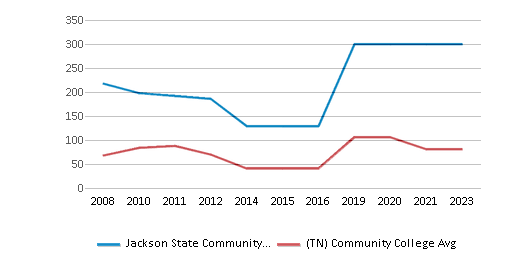
School Calendar
Student Body
The student population of Jackson State Community College has stayed relatively flat over five years.
The student:teacher ratio of 16:1 has increased from 14:1 over five years.
The Jackson State Community College diversity score of 0.51 is less than the state average of 0.65. The school's diversity has stayed relatively flat over five years.
Total Enrollment
4,699 students
605 students
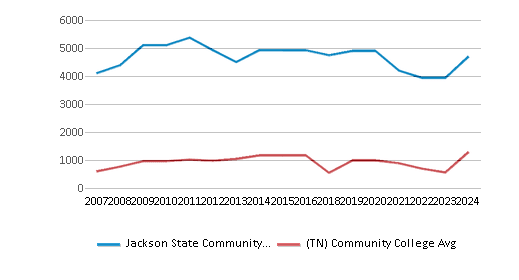
Student : Teacher Ratio
16:1
18:1
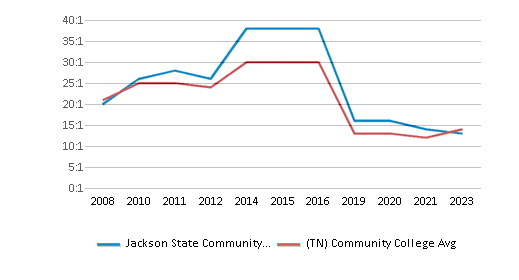
# Full-Time Students
1,474 students
400 students
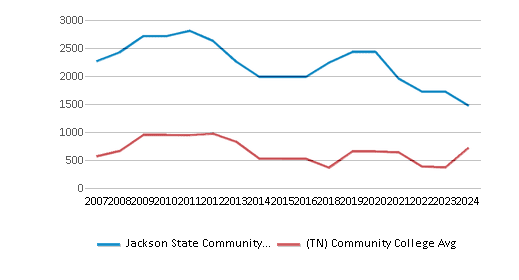
# Part-Time Students
3,225 students
230 students
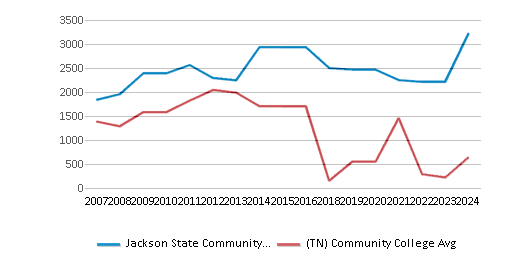
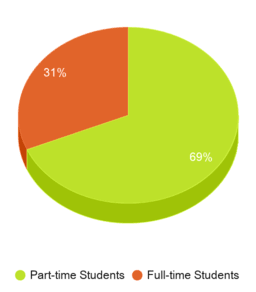
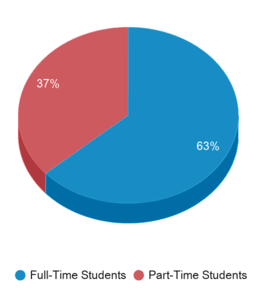
# Enrollment Undergraduate
469 students
504 students
# Full-Time Undergraduate Students
1,474 students
400 students
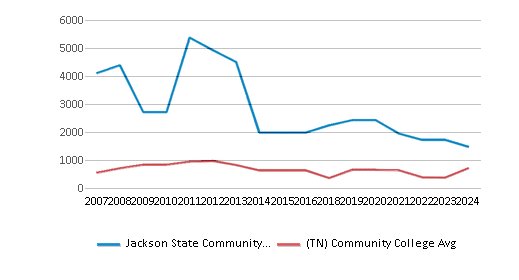
# Full-Time Graduate Students
n/a
12 students
# Part-Time Undergraduate Students
3,225 students
335 students
# Part-Time Graduate Students
n/a
12 students
Total Dormitory Capacity
n/a
195 students
% American Indian/Alaskan
n/a
n/a
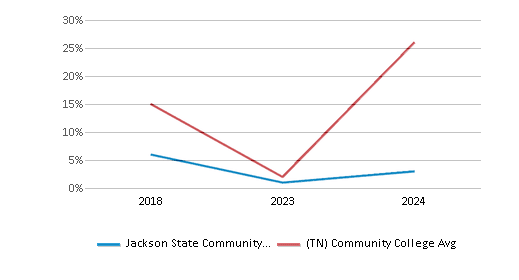
% Asian
1%
4%
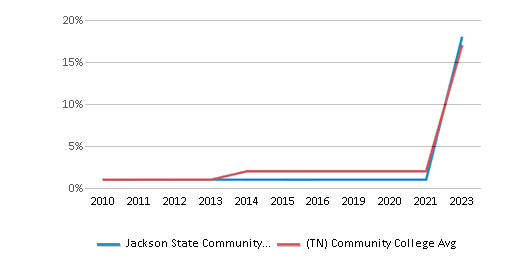
% Hispanic
3%
6%
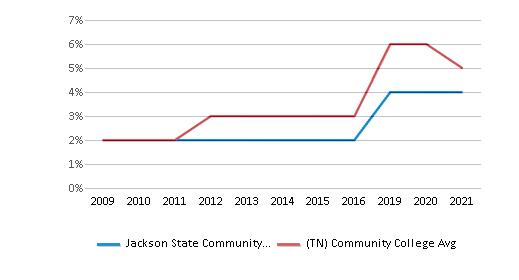
% Black
19%
19%
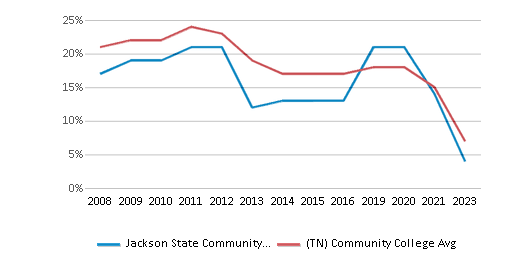
% White
67%
55%
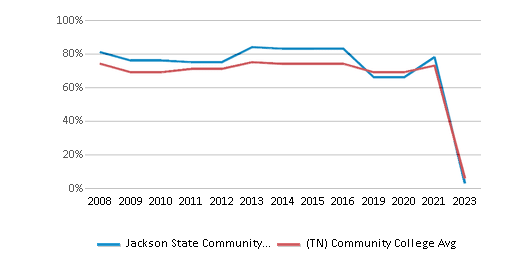
% Hawaiian
n/a
9%
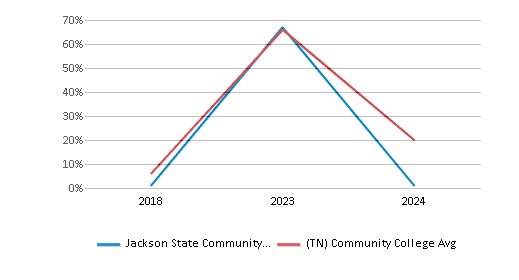
% Two or more races
4%
3%
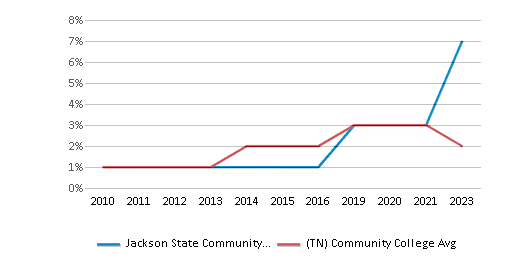
% Non Resident races
n/a
1%
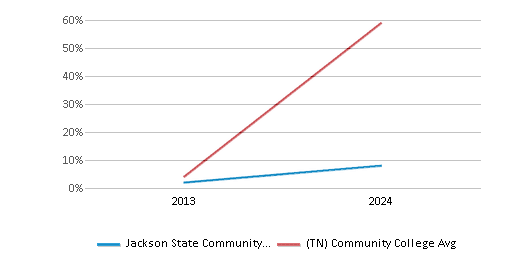
% Unknown races
4%
3%
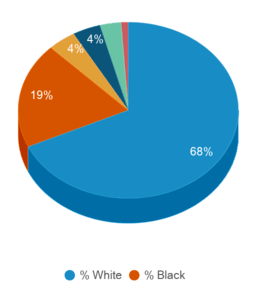
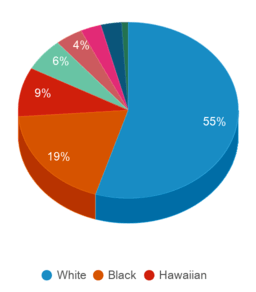
Diversity Score
0.51
0.65
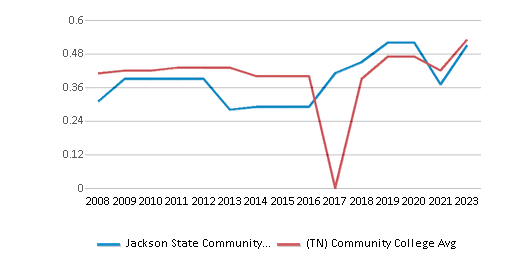
College Completion Rate (Students who graduate in less than 4 years)
0.2311%
0.6038%
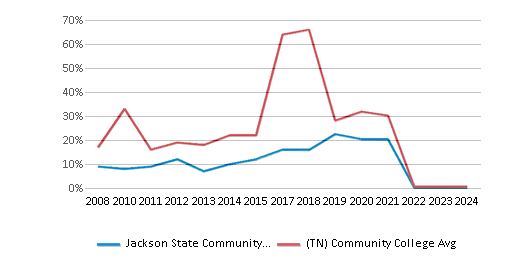
College Completion Rate (Students who graduate in 4 years or more than 4 years)
n/a
0.5213%
Average Graduate Earnings (10 Years)
$29,400
$29,000
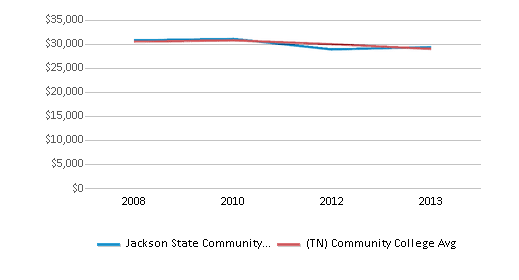
Tuition and Acceptance Rate
The public in-state tuition of $3,804 is less than the state average of $5,176. The in-state tuition has declined by 12% over four years.
The public out-state tuition of $14,868 is less than the state average of $15,746. The out-state tuition has declined by 12% over four years.
In-State Tuition Fees
$3,804
$5,176
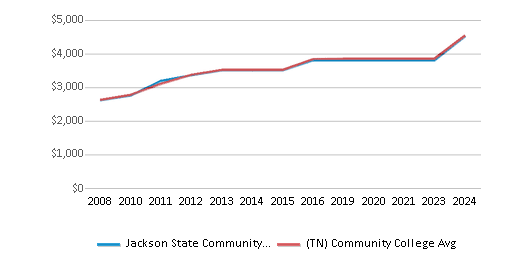
Out-State Tuition Fees
$14,868
$15,746
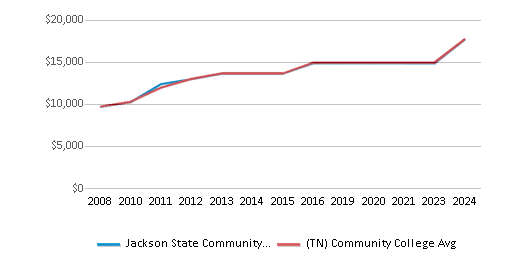
% Students Receiving Some Financial Aid
97%
97%
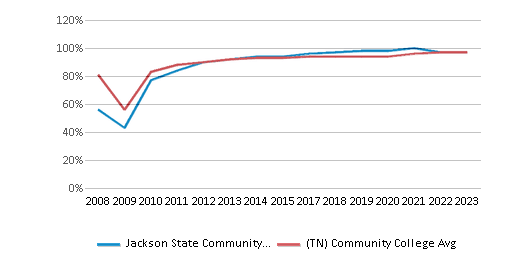
Median Debt for Graduates
n/a
$11,730
Median Debt for Dropouts
n/a
$5,250
Acceptance Rate
56%
95%
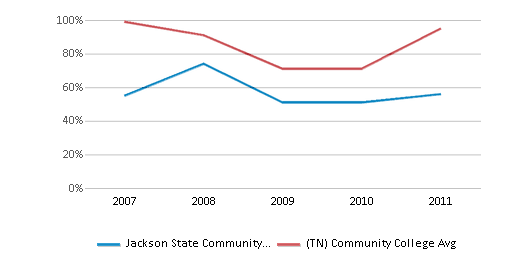
SAT Reading
n/a
415
SAT Math
n/a
455
SAT Writing
n/a
469
ACT Composite
19
19
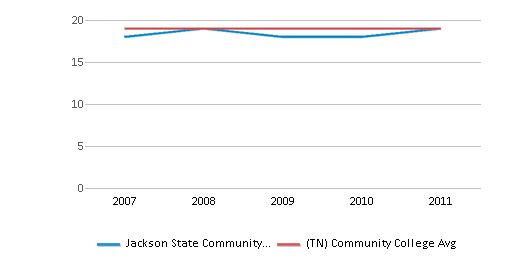
ACT English
18
19
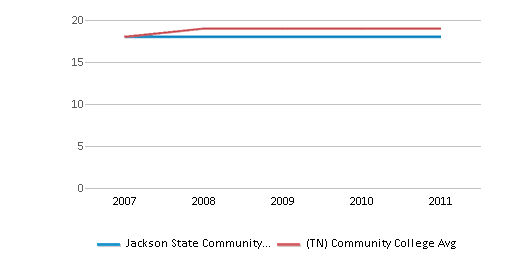
ACT Math
17
18
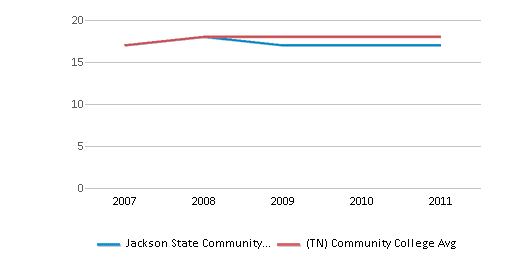
Source: 2024 (or latest year available) Integrated Postsecondary Education Data System (IPEDS)
School Notes
- Jackson State Community College is governed by the Tennessee Board of Regents (TBR), which was created in 1972 by the General Assembly as the governing body of the State University and Community College System of Tennessee. Quality, affordable, convenient education is offered to residents of 14 West Tennessee counties including Benton, Carroll, Chester, Crockett, Decatur, Gibson, Hardeman, Hardin, Haywood, Henderson, Henry, Madison, McNairy and Weakley. JSCC has campuses in Madison, Henderson, and Hardin counties. In addition, in fall 2001 courses were offered at community-based teaching sites in Milan, Bolivar, Brownsville, Henderson, Jackson and Savannah. You can choose from 24 concentration areas to earn the Associate of Arts or Associate of Science from the College/University Transfer program. Nearly one half of our students transfer on to four-year schools. Choose from 15 majors within Associate of Applied Science degree programs for students who want to enter the job market directly from Jackson State. In addition, three degrees are also available completely online through the Regents On-line Degree program: Associate of Applied Science in Professional Studies Concentration in Information Technology, Associate of Arts in General Studies (University Parallel), Associate of Science in General Studies (University Parallel). Technical Certificates are offered in Emergency Medical Technology Certificates and Manufacturing Technology Certificates. Career Advancement Certificates are also available in Manufacturing Technology and Electro-Mechanical Technology. Jackson State is accredited by the Commission on Colleges of the Southern Association of Colleges and Schools to award the Level 1 Associate degree. Career programs in the Health Sciences are accredited by agencies recognized by the U. S. Department of Education.
Frequently Asked Questions
How much does Jackson State Community College cost?
Jackson State Community College's tuition is approximately $3,804 for In-State students and $14,868 for Out-State students.
What is the acceptance rate of Jackson State Community College?
The acceptance rate of Jackson State Community College is 56%, which is lower than the state average of 95%.
What is Jackson State Community College's ranking?
Jackson State Community College ranks among the top 20% of community college in Tennessee for: Least expensive tuition.
Recent Articles

Obtaining Your Bachelor's Degree at a Community College
Explore the evolving landscape of community colleges offering bachelor's degrees, addressing affordability, accessibility, and workforce needs.

A to Z of Community College Certificates and Courses
From business and healthcare to technology and skilled trades, the article showcases the breadth of options available to students seeking to enhance their knowledge, develop new skills, or pursue career advancement.

What is a Community College?
This comprehensive guide explains what a community college is, its history, and its role in higher education. It covers the types of programs offered, differences from four-year colleges, benefits of attending, and important considerations for prospective students, providing valuable insights for those exploring educational options.









